NMEA Conference 2012, improved by strife?
The 2012 NMEA Conference has been completely redesigned — as in NEW, NEW, NEW! — and I have a pretty good idea why. There was a strange moment during last year’s conference, a noisy late-night hotel bar scene that got just a little quieter when many of us realized that the most senior managers of Garmin, Furuno, Navico, and Raymarine in attendence were gathered in a corner talking intensely. What the heck? The Big Four of marine electronics are pretty fierce competitors and you don’t normally see the honchos having drinks together. Of course there was joking about price fixing but apparently the real subject was how to fix the Conference. To understand the issues — which will affect most all us boaters eventually — you need to know more about the dynamics of the NMEA…
For 55 years now the NMEA has been a dealer centered organization. The official history says that the founding members “got together at the New York Boat Show to discuss how to strengthen relationships with electronic manufacturers” but I’ve heard that phrased a little differently by an old timer who was there. As in “the little dealer/installers got together so we could stand up to the damn manufacturers!”
There’s a natural tension between dealers and manufacturers in any industry I suspect, but especially one where the retail companies are typically quite small, which is still true of marine electronics dealer/installers. But of course there’s also common ground, which is why manufacturers have been permitted to be members of NMEA for some time. We see the results in standards like NMEA 0183, NMEA 2000, and the coming OneNet. But the manufacturers do not run the NMEA by any means…
Just check out NMEA’s Board of Directors. By my count, at least ten of the eighteen, including the Chairman and Vice Chairman, are dealer/installers while the manufacturers only have three representatives on the board. But then again, the manufacturers must be a significant income source for the NMEA orginization when you consider things like higher dues, ads in the Marine Electronics Journal, and all the ways they support the annual conference. This is a recipe for tension…
The immediate problem bothering the manufacturers is the odd fact that recent conferences haven’t attracted enough actual dealer/installers. It’s expensive for, say, a boatyard in Maine to send its main electronics person to a four day conference and it’s really expensive for a big manufacturer to send a product exhibit and a team to man it and also run trainings. If not enough of the former happens, the latter seems pointless.
And even a small number of dealer/installers can be a tough crowd, as I saw last year when several of them got quite vocal when one manufacturer presented a new warranty policy that seemed to include untrained “dock walkers” (i.e. installers without retail shops). I don’t know exactly what happened after that show but things have changed, including NMEA’s Executive Director, which is one of its very few paid positions, and clearly the organization is trying to run a Conference that attracts more dealer/installers. They’ve trimmed away much of the fraternal organization type fun — no more golf and fishing tournaments, for instance — in favor of packing the days with more training and product demo value. I’ve included various bits of the conference brochure to illustrate, and the program sure looks good for serious installers to me. But attracting that segment is not the only problem facing NMEA…
There are at least two constituencies not represented on NMEA’s board at all, the big marine electronics retailers like West Marine, Defender, and even Best Buy, plus the production boatbuilders who now often install complete systems in their factories. The manufacturers aren’t happy about that either, and one executive who cornered me at the last Lauderdale show must have repeated the following ten times: “They have to decide if they’re The National Marine Electronics Association or The National Marine Electronics Dealer/Installer Association!” The manufacturers want to preview their latest products to all their channels and they want all their channels to get the training that results in good installs and satisfied customers.
I remain a big fan of NMEA. I think that the open standards and installer certification levels the organization has created have yielded enormous benefit to boaters. And I like many other NMEA initiatives, like the recent Master Dealer program, which carefully quantifies the technical proficiency and customer service commitment of specific shops. But I also think that the big manufacturers have a valid point; a future NMEA can be even more important to the health of marine electronics if it can gracefully include all the constituencies involved (hobbyists too!).
I’ll close with another enticement to attend the 2012 NMEA Conference in Orlando next month. I don’t know for sure that the infamous Single Side Band will play again this year, but who would dare deny them? That guitar front line consists of NMEA Board Chair David Gratton, SouthEast Director and Conference Chair Brad Good, and Interim Executive Director Bruce Angus. They’re good too!


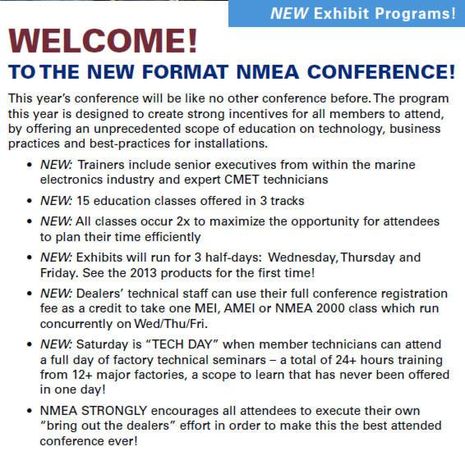
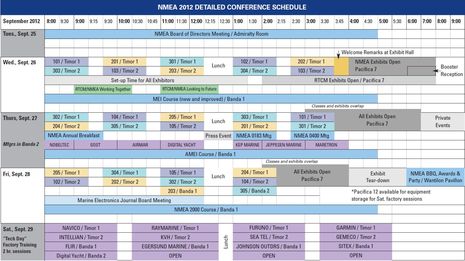


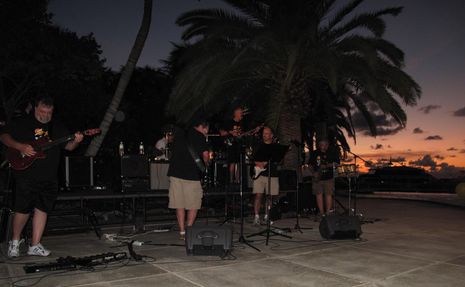
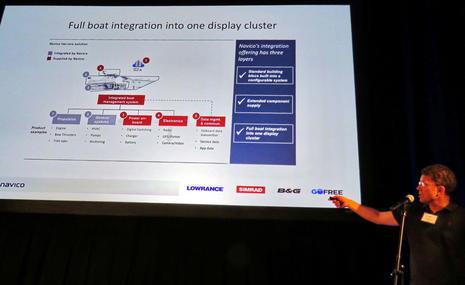
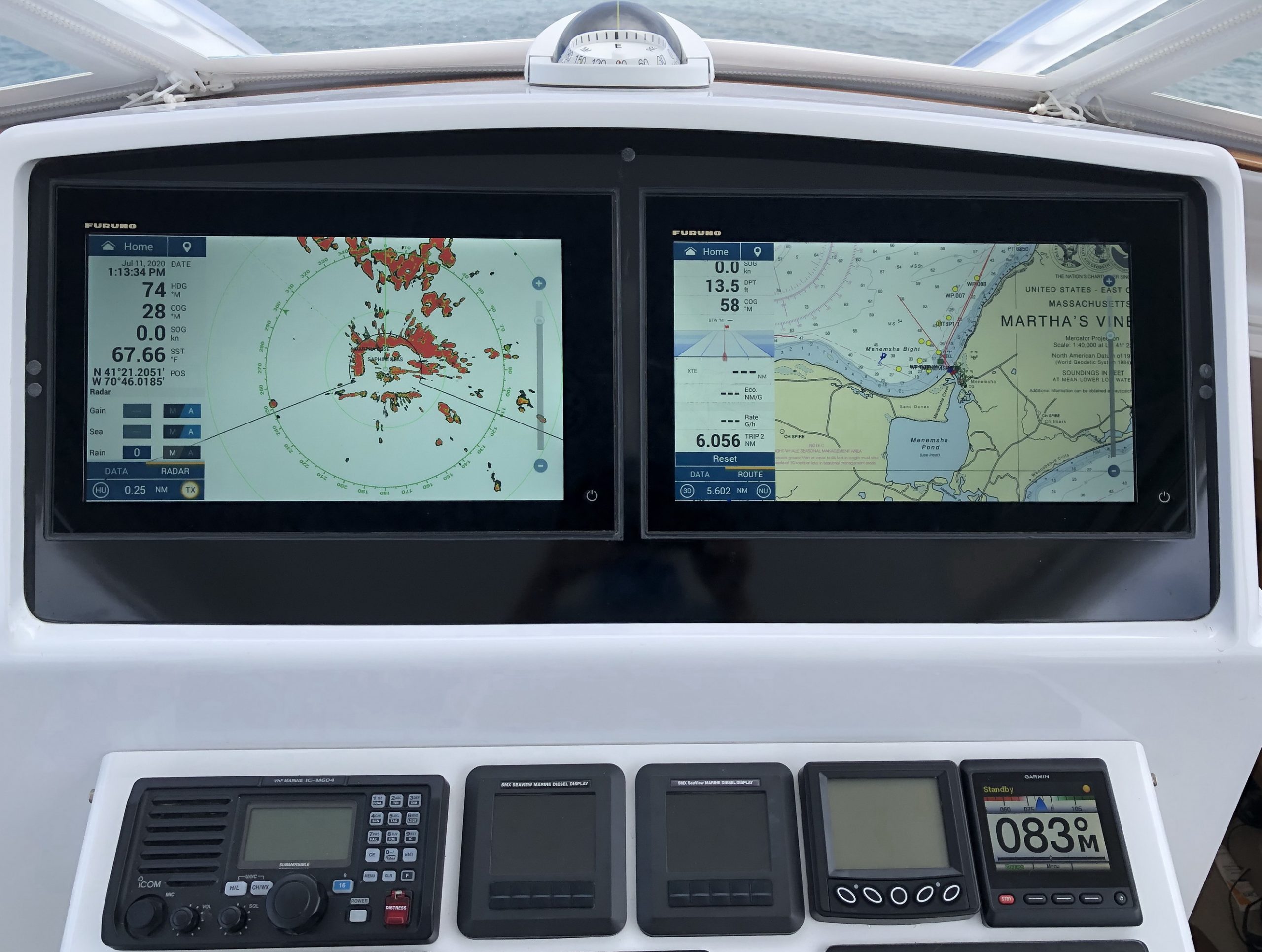
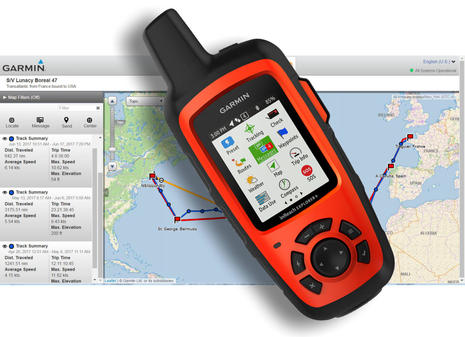
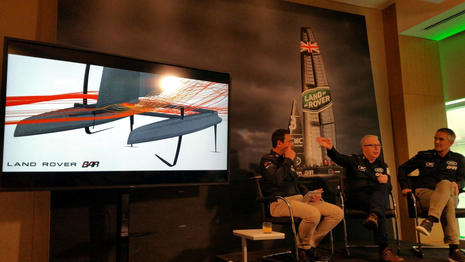







Hi Ben,
Any idea if remote access will be provided for the NMEA conference meetings? Webex, etc. This is pretty common practice for many standards development organizations.
Cheers
55% off one item? Ben, will you pick up a NSE12 for me when you’re there?
Well written Ben!
In 2009 I was REALLY excited by the prospects offered by the NMEA2000 standard. As an individual boater, I invested a LOT of time and money to join the association. I attend the 2010 Seattle conference. I got NMEA trained & certified both as an MEI and on NMEA 2000 Networking. A true believer, I installed an extensive NMEA 2000 network in our boat. I also wrote an article on Technological Convergence in Marine Electronics that was published in the Marine Electronics Journal in April 2011.
http://www.marineelectronicsjournal-digital.com/marineelectronicsjournal/20110304?pg=41#pg41
Since the end of 2011 I have let my NMEA membership lapse and I have not attended follow up conferences despite my enthusiasm and passionate interest.
WHY?
Because of exactly what you have written about here.
One year ago, I concluded that NMEA really is an association of marine electronics dealers. I concluded that NMEA exists to serve the dealers not the boaters, commercial or pleasure. To go further with this; NMEA does not exist to promote the NMEA standard or to promote convergence, integration and progress in marine electronics. NMEA exists to protect the interests of the marine electronics dealers and to maintain the status quo in the distribution channels for marine electronics. At the Seattle convention I recall sitting, listening and rolling my eyes as dealers criticised OEMs for not enforcing MAP (Minimum Advertised Price). Apparently I did not miss much last year, you wrote that last year’s dealer vs. manufacturer issue was one OEMs new warranty policy and ‘dock walkers’. Despite NMEA’s HUGE contribution (which I benefit from every day) in creating the N2K standard the association has done very little to publicize and promote the benefits of the N2K standard to pleasure boaters. I have complained to a some NMEA Directors about this. My complaints are politely acknowledged but nothing seems to change.
Last spring at the Miami boat show NMEA’s presence was so insignificant that NMEA should have not bothered to show up at all.
I hope that this article and the Big Four will cause NMEA to ‘wake up and smell the coffee’. Progress towards Technological Convergence in Marine Electronics seems to be happening and even faster than I predicted that it would. That this is happening in spite of NMEA instead of because of NMEA is sad indeed.
If I thought that there was a willingness to change at NMEA I would renew my commitment to NMEA and might even attend this years event but for now I am content to travel on my boat and enjoy the benefits of N2K more or less in secret. As I write this today I am in the Back Creek at Eastport next to Annapolis just 30 minutes by car from Severna Park. Does anyone in Severna Park want to talk about this? My US cell number is given below.
Thank-you NMEA for creating the N2K standard. I love it and benefit from it every day. Unlike you Ben; I am more a fan of the standard than the association as it exists today
Ken Jennings
http://www.ourtardis.net
202 378 4868 USA cell
416 570 4957 Canada cell
Ben
Thank you for your good article and for publishing information about the 2012 NMEA Conference in Orlando. NMEA is very aware of the need to improve member benefits to justify belonging to NMEA. The critical points that you and the commenters made are mostly valid – in the old NMEA.
In response I’d like to say that many, many positive changes have happened in the Association over the past year and it will take some time before these improvements become evident to the broad marine electronics community. We still have a ways to go, but with a dedicated and energetic Board of Directors and a host of volunteers from across the industry who contribute their valuable time and experience to the standards and education programs, NMEA is clearly on the right track going forward.
An association such as NMEA is only as good as the volunteer experts who contribute their time to build standards and training that benefit everyone in boating and in the industry and we always welcome new volunteers. You know the old saying, “If you’re not part of the solution,…..”. NMEA has a staff of only 5 people and the Association absolutely depend on industry volunteers to make progress.
I invite everyone to visit the NMEA Annual Conference in Orlando 26-29 September and see the improvements, energy, technology and opportunities in the marine electronics industry. There is also a boatload of free training on offer and my humble opinion is ‘If you snooze, you lose.”
See: http://www.nmea.org and click on the conference logo.
Bruce Angus
Interim Executive Director
NMEA
I am happy to report that NMEA is closely following Ben’s blog and that some NMEA officers are reading the blog and our comments. Thank-you very much to Johnny Lindstrom, NMEA’s Vice Chairman who took me at my word and called me right after my comment appeared. Johnny shared some observations and ideas with me during our lengthy call. After the call it was clear to me that there are folks at NMEA who know that NMEA must constantly review its cruise plan & its course with a view to making the occasional course correction.
It was refreshing to speak with Johnny. I wish that I was going to be able to attend the conference but we must continue northward in order to complete our Great Loop & to have our TARDIS back into Ontario & onto the hard by the end of October.
A simple request to NMEA:
Combine the NMEA conference with IBEX and have it in Louisville at the same time. All the other players are already there, including the boat builders.
My two cents.
-Earl
I thoroughly agree, Earl, and I think it’s going to happen eventually. I know for sure that it’s been discussed for a while, and there seems to be enthusiasm for idea both from IBEX and NMEA.
Ironically, I’m beginning to realize that I may not make NMEA this year in part because I’m participating in two NMEA presentations at IBEX. The other part is getting Gizmo to the Baltimore/Annapolis area, where I’ll go to local shows and fly to distant ones. I might well miss the best NMEA Conference in a long time!
(Anyone know a sweet deal on docks or moorings in that area for a few weeks?)
Ben, this was a really insightful piece, and proves how complicated, and disparate the world of boat electronics in all of its diversity can be. The truth is we need NMEA. Somebody has to try to provide some sense of commonality between vendors, an NMEA has largely succeeded at this. This hasn’t stopped the grumbling about NMEA (some comes from me), and manufacturers, much to my chagrin still sneak in stuff on the edges to try to keep a propriety edge. Let’s see the red thigh bone, connects to the blue knee bone. But as Bruce mentioned “If you’re not part of the solution,…..”.
I think that for most of us the the ugly side of the business, that to be certified, in everything is a time consuming, and very expensive task. Certifications, run the gamut from sit through a sales pitch, and you’re a winner, to one of the tests asked me to identify the symbol for a zener diode. I was just hoping the next question didn’t ask about tube theory. By the way NMEA, ABYC et al, my insurance carrier could care less whether I’m certified or not. I’m in the same category as someone who has to weld a crack in a liquid hydrogen tank vessel, a “Ship Repairer”. Ponder on that, the policies are really expensive.
The point is that many of us we encounter a bewildering variety of issues day to day. A scuffle between a bottom paint manufacturer, a boat builder, the boat yard, and the owner who has a stray current corrosion hole in his propeller. Or replacing an custom built E-plex module in a AC distribution panel. My point being that day to day, you can deal with a staggering array of different issues, all involving Mr. Electricity, and most often these problems are not covered or dealt with by most educational programs.
Marine electronics today are much easier to install than they were even a few years ago. The modus operandi is plug and play, and this is for the better. I’m not missing those tiny wires the thickness of human hairs. Most people hire me because they just don’t want to do it themselves, I’m pretty good at it, and I can actually teach you how to use it. Kids working in larger retail outlets with few skills can now skim clients off the top, and succeed, if they can read.
Oh, and by the way, I’m a dock walker with no retail outlet. Even with MAP strictly enforced, you just can’t compete with the big boxes, and aggressive internet companies, so why bother. So I’m okay with NMEA, and I think they are trying hard to move in the right direction for all of us.
I will be attending for the first time ever this year. From the article it ought to be interesting. I will be walking the show and attending seminars to see how we (Bass products) fit in. My hope is that we can become more involved in NMEA as power distribution and control become more and more integrated with the electronics onboard.
It really is time for the big four to fund an international marine standards seperate from a country specific dealer representative body
Dave, why would that be desirable?
Not that it seems likely to happen. Note that the Big Four are all involved in creating the new OneNet marine Ethernet standard under the auspices of the NMEA. Note too that the “National” in NMEA hasn’t been very accurate for some time. The standards are truly international, like the Big Four and numerous other manufacturers, and the organization itself is getting more so.
What I tried to describe in this entry is how the two major constituents of NMEA are sometimes in tension and how one holds the major organizational power while the other is likely the largest revenue source. But nothing about NMEA is black and white. The dealers don’t necessarily agree on everything, and ditto for the manufacturers. And there are other constituents. The overall point is to view as a complex outfit, and certainly not a monolithic “club” like some uninformed critics try to do.
I’ll close with some verbiage from the OneNet press release:
“OneNet® was initiated by a group of manufacturers who asked the NMEA to standardize a method of transmitting and receiving NMEA 2000® messages on
Ethernet. The initiating manufacturers contributed their engineering expertise and have been an integral part of developing OneNet®. Participating on NMEA’s OneNet® Committee are Actisense, Airmar, Digital Yacht, the Electronics and Telecommunications Research Institute of South Korea, FLIR, Fugawi, Furuno, Garmin, Johnson Outdoors, Korean Maritime University, Krill Systems, Maretron, Molex, Mystic Valley Communications, Navico, Raymarine, the U.S. Coast Guard, and Victron Energy. Additionally, the U.S. Coast Guard R&D Center has contributed invaluable input to
ensure that OneNet® meets the needs of commercial vessels in addition to those of national and international standards authorities.”
Because the I think the creation of Marine sta ndards has gone beyond NMEA. The lack of response over extending the base NMEA 2000 standard suggests that it cant rally handle the processes. If the big four want a less dealer focused group, then they alone could probably fund one. NMEA would return to its roots representing North American Dealers.
dave
Why would you look to start another standards body from scratch when NMEA seems to be heading (mostly) in the right direction? Do you have another organization in mind?
Earl & Ben,
IBEX in Kentucky is in my opinion, a poor choice of locations. Is there a large body of water, boat manufactures, electronics manufactures, or something else that I am missing in Kentucky? There are a lot more boats, manufactures, and installers right here in Florida, and on the west coast in the Seattle area for that matter. Why make everyone travel to a place that is as far away from marinas, boats, and electronics manufactures as possible? I think that NMEA has made a wise choice in locations. I believe that having the conference in Seattle and Florida has given a lot more people connected to the industry a better chance of attending.
Thanks Ken, it was a pleasure speaking with you as well. I will be following up on our conversation and the information you sent me.
Thanks again, I’ll keep in touch.
Kindest regards,
Johnny Lindstrom
Vice Chairman NMEA BoD
Dave,
If you were to visit the NMEA.org website you will find that an international standards body is already in existance, IMEA. The formation of the IMEA is to foster greater involvement between all our international members, as well as to fund future standards development for the industry stake holders world wide.
When you get a chance, have a look.
Thanks for your post, we look forward to hearing the good and the bad.
Regards,
Johnny Lindstrom
Vice Chairman NMEA BoD